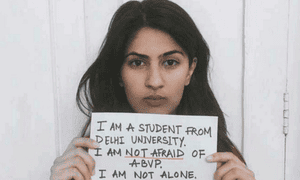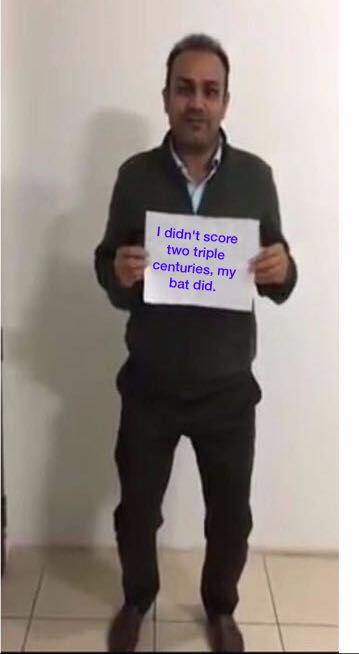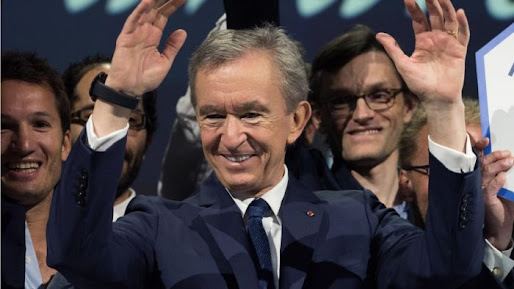News: 'I am not afraid': the Delhi student facing death threats for taking on India's right wing




The photograph that led to Gurmehar Kaur being put under 24-hour police protection was taken by her best friend on a camera phone in her university dorm room. The simple colour shot shows her holding a placard saying she would not be intimidated by a rightwing group she accused of disrupting her college.
Only hours after she posted the image to Facebook, Kaur, a 20-year-old English student at Delhi University, found herself at the centre of a national debate that, for weeks now, has fed television shows, news stories and editorials and has involved politicians, film stars and the former captain of India’s cricket team.
The debate has thrown into the spotlight not only the issue of online abuse but also the political climate in India where universities have become key political battlegrounds and where powerful rightwing student bodies have mass political support.
The story of Kaur’s domestic incarceration has its roots in a video she appeared in last year that briefly led to her becoming becoming a minor viral sensation. She made the four-minute clip in which she recounted the pain she felt over the death of her father – an Indian army captain who was shot on duty in the 1998 Kargil war between India and Pakistan.
The video proved to be both provocative and enlightening because it was open and honest about her feelings – she said that until recently she had “hated all Muslims”, blaming them for taking her father away from her.
In that video she had again used a placard to make a point about the need for peace, stating at one point “Pakistan did not kill my dad, war killed him”..
Nationalists were furious. They were searching for details of her life, unearthing the video from last year and using it to attack her. One man said Kaur was “leveraging her father’s death.” Others called for the 20-year-old student to be raped or murdered.
Kaur was at first unflustered. Critics of the Akhil Bhartiya Vidya Parishad (ABVP), the rightwing student organisation she had singled out, often face an army of online trolls, many of whom have the Indian flag or Hindu iconography and slogans on their profiles.
But soon people were posting images that parodied the video she made about her father.
Photos of Osama bin Laden carrying the tagline “Did not kill people, bombs did”, or of Adolf Hitler with the slogan “Did not kill Jews, gas did” spread across Twitter and Facebook.
Soon celebrities joined in. A government minister went on national television and said Kaur’s “mind has been poisoned” . Virender Sehwag, former captain of the Indian cricket team, posted an image of himself carrying a placard that read “I did not score two triple centuries, my bat did”.
“It was heartbreaking,” Kaur says. “It is so sad to see some one you admire saying these things about you.”
Hooda’s message, Kaur said, devastated her, because she had been a fan of his films. She wrote back, saying: “Really sweet of you to encourage the hate I’ve been receiving.” Hooda later apologised saying: “In hindsight, I do believe should have been more careful.”
“I have been receiving an enormous amount of hate,” Kaur tells the Guardian, speaking from her home outside Delhi where she is waiting for the political row to die down while under police guard.
“I don’t understand why. People are making memes about me, trolling me. I’ve stopped checking my phone because it would kill me. It makes me sad that this is how people think. Why is there this whole environment where it’s OK to tell girls you’ll be raped if you voice your opinion?”
Gurmehar Kaur, a Delhi University student who is under 24-hour police protection after posting a picture on Twitter saying she would not be frightened off by rightwing opponents
Gurmehar Kaur, a Delhi University student who is under 24-hour police protection after posting a picture on Twitter saying she would not be frightened off by rightwing opponents. Photograph: Gurmehar Kaur
Part of the reason for the intensity of the backlash against Kaur can be put down to the political climate in India’s universities. While, in the west, campuses tend to be hubs for liberal and leftist views, India’s rightwing student parties have mass political support.
The ABVP is widely considered to be the youth wing of Narendra Modi’s ruling Bhartiya Janata party (BJP) and is riding high on the prime minister’s popularity. It is now the world’s largest student organisation with more than 3 million members and wins student elections across the country.
The organisation acts as promoter of Hindu nationalist ideology on campuses. Members have been accused of violence and bullying. Last year, a Dalit (untouchable) student at Hyderabad University committed suicide after an apparent row with the ABVP, who allegedly labelled him an “anti-national”. Previously, members have been accused of beating up university professors and staff, preventing film screenings and gagging academic debate. The ABVP denies that any of its members are violent or abusive.
For Kaur, the rise of the group at her university was alarming. She had posted her controversial photograph after her friends, members of a rival student party, alleged they were pelted with stones and beaten with iron rods during a demonstration to allow the controversial speaker Umar Khalid to speak about his PhD at the university. Khalid, who has voiced support for Kashmiri nationalism in the past, is branded an “anti-national” by the ABVP.
Perhaps the irony is that, a few years ago, Kaur would never have defended Khalid’s right to speak freely. For her, the conflict between India and Pakistan over the disputed territory of Kashmir is deeply personal, one that took her father’s life.
“I was only two years old when my father died,” she says. “I grew up believing all Muslims and all Pakistanis were responsible for his death and so I hated them. I loved India and I hated anything that was not Indian. When I was at school, they taught us that the British colonised us. So I hated Britain. I hated any flag that wasn’t the Indian flag. I would fly into a rage at the sight of a foreign flag.”
Aged six, and traumatised by her father’s death, Kaur had tried to stab two Muslim women dressed in burqas.
“I was at the market with my mother,” she says. “At that time, I couldn’t differentiate between Muslims and Pakistanis. I just thought they are Muslim so they are bad. I picked up a knife that one of the vendors had and I ran towards them. In my mind, I was thinking, ‘I have to kill them.’ When you’re six, you don’t understand geography, you don’t understand religion. My mother held me back and just looked at me. That’s when she understood how much toxicity there was in my mind, how much hatred.
“It was just something spontaneous and unplanned,” she says. “The point I was trying to make was very genuine and deep.
“It took me 18 years to overcome the hate I had felt as a child and I made that video because I don’t want other girls to go through what I went through.”
Then, this year, Kaur decided to take on the ABVP because she felt the safety of students on campus was threatened.
“University spaces should not be terrifying,” she says. “We go to college to learn things, to have discussions, to watch plays, to hang out at the canteen.”
Saket Bahuguna, the ABVP’s national media convener, says that Kaur’s allegations against the ABVP are not backed by any evidence.
“She can’t prove that it’s ABVP members who are trolling her,” he says. “I don’t want to comment on her video. Speaking on behalf of ABVP, none of our members are involved in this. We have even lodged a police complaint, asking them to arrest anyone found threatening her. She should not blame us.”
The torrent of abuse, however, hurt Kaur deeply. A week after she posted the picture, she sent out another tweet, now to her tens of thousands of followers.
“I am withdrawing from this campaign,” she wrote. “Congratulations everyone. I request to be left alone. I have been through a lot and this is all my 20 year old self could take.”
“I don’t know how I ended up here, how I ended up as the centre of so much attention,” she says. “I guess if it gives me a louder voice to spread my message, then OK, I’ll take it.”



Comments
Post a Comment